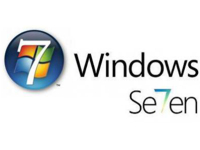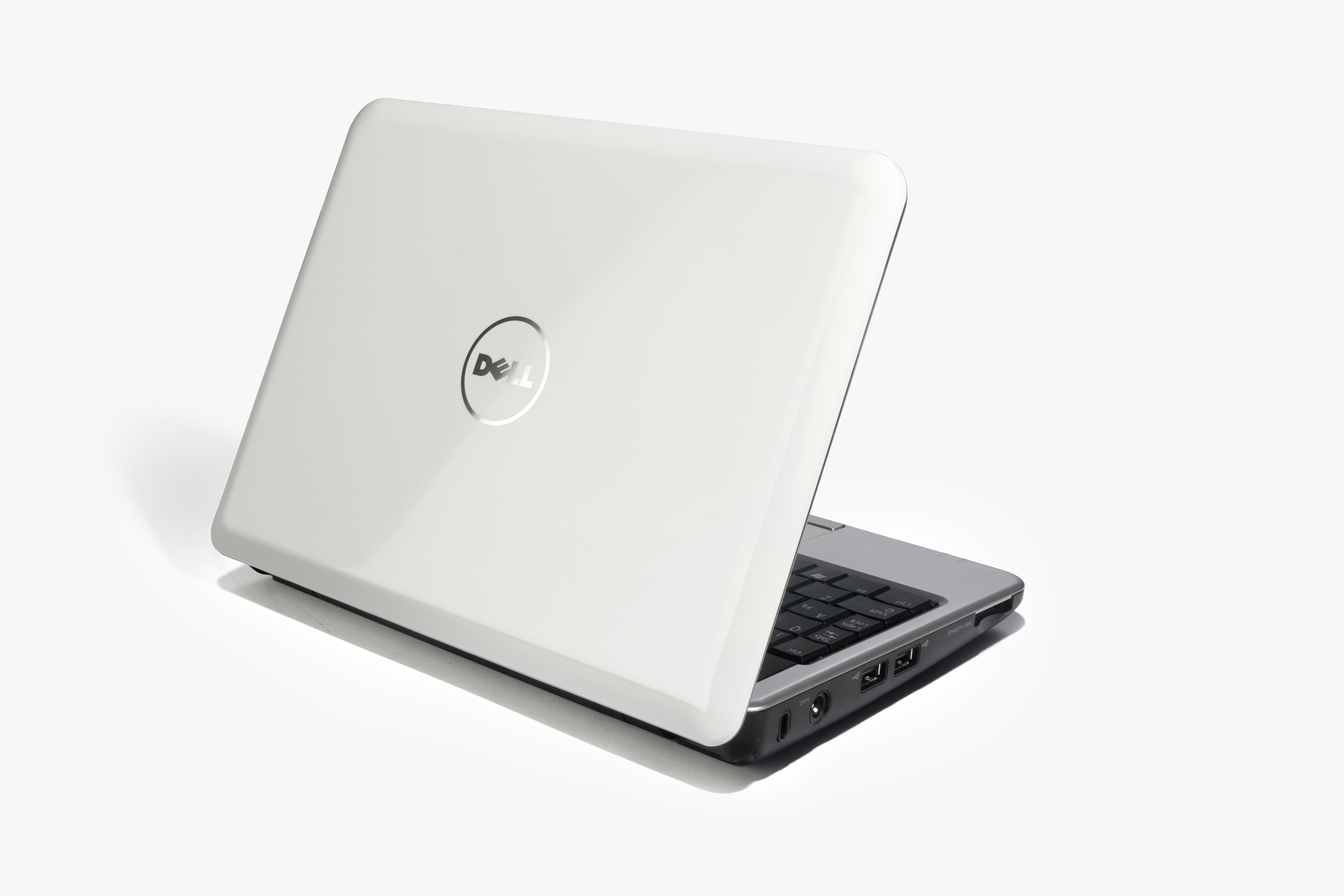Microsoft Says Windows 7 Wins on Netbooks
Even with the lauded release of Windows 7 beta, there is still a small question mark next to what will become the defacto operating system for netbooks.
The fact is that Windows XP is getting way past long in the tooth, and Windows 7 looks to be the one to finally replace it for the masses. That said, the performance requirements of Windows XP and its smaller footprint makes it well suited for the Intel Atom and while Linux is even more efficient, users still want that familiarity of Windows.
“Customers choose Windows because they want the best possible user experience. While many initial small-notebook PCs in the market were Linux-based, they didn’t live up to customers’ expectations. Customers expected a Linux-based PC to look and function like their Windows-based desktop PC and they were disappointed,” said Brad Brooks, corporate VP for Windows Consumer Product Marketing. “To share some numbers: since February 2008, Windows OS share has gone from 10 percent to over 80 percent on these machines, and our research shows that these are overwhelmingly new PCs and/or PC users.”
Brooks also took the chance to boast Windows' ubiquity, saying, "Windows provides a level of application and device compatibility you simply don’t get with Linux. Windows works with everyday programs like Microsoft Office and popular applications like Apple’s iTunes and Microsoft’s Zune, PC games like “World of Warcraft,” and a host of others. It also works with the largest set of printers, digital cameras and other devices. Linux doesn’t come close to doing any of these things.
"That may be why return rates of Linux-based netbooks are so high. Partners MSI and Canonical have mentioned to press that return rates on their Linux-based small-notebook PCs are about four times those of Windows-based small-notebook PCs."
Microsoft isn’t going to be selling Windows XP licenses forever (and supporting it) and netbooks will eventually have to get with the times. Windows 7 will take over at some point -- and it’s in the interest of Microsoft and all computer users in general to move to the more modern and secure system, however, the overall performance has to be there for netbook users to feel like going to Windows 7 is more of an upgrade rather than a step backwards in usability.
“With Windows 7, we’ve matched hardware improvements with some investments of our own. With Windows 7 we are on track to have a smaller OS footprint; an improved user interface that should allow for faster boot-up and shut-down times; improved power management for enhanced battery life; enhanced media capabilities; and increased reliability, stability and security,” explained Brooks.
Get Tom's Hardware's best news and in-depth reviews, straight to your inbox.
“These engineering investments allow small notebook PCs to run any version of Windows 7, and allow customers complete flexibility to purchase a system which meets their needs. For OEMs that build lower-cost small notebook PCs, Windows 7 Starter will now be available in developed markets,” he added. Windows 7 Starter is a light-weight version of the OS without the fancy interface, and is also limited to having three applications open at once (perhaps in an effort to prevent the system from getting bogged down).
Windows General Manager Mike Ybarra added that Windows 7 differs from Vista in that the different editions are engineered to run on a wider range of systems. “We have designed Windows 7 so different editions of Windows 7 can run on a very broad set of hardware, from small-notebook PCs (sometimes referred to as netbooks) to full gaming desktops. This way, customers can enable the scenarios they want across the broad hardware choices they have,” said Ybarra.
Users of the public beta are already reporting good performance from Windows 7 on netbooks, and Ybarra promises that Microsoft is still working on fine tuning things even further.
“At beta we've had a lot of people running our most premium, full-featured offering on small-notebook PCs (netbooks) with good experiences and good results. So we’re pleased to see that on this class of hardware Windows 7 is running well. And of course we will continue to tune Windows 7 for performance as we move through the engineering cycle,” assured Ybarra.
Downloads of the public beta closed today after being available to the public since early January.
-
geoffs Windows works with everyday programs like Microsoft Office and popular applications like Apple's iTunes and Microsoft's Zune,....Reply
I think you missed the punctuation, should look like this:
"Windows works with everyday programs like Microsoft Office, and popular applications like Apple's iTunes, and Microsoft's Zune,...."
Otherwise, it looks like he's saying iTunes and Zune are both popular, and no one can say that with a straight face. -
jhansonxi Does the three application limit include processes for antivirus, firewall, and DRM? What if I want to run something useful?Reply -
notherdude geoffsWindows works with everyday programs like Microsoft Office and popular applications like Apple's iTunes and Microsoft's Zune,....I think you missed the punctuation, should look like this:"Windows works with everyday programs like Microsoft Office, and popular applications like Apple's iTunes, and Microsoft's Zune,...."Otherwise, it looks like he's saying iTunes and Zune are both popular, and no one can say that with a straight face.Reply
MS could say it with a straight face, but only MS, hehe
-
foxman "Microsoft Windows works with Microsoft Office and with Microsoft Zune." What a ridiculous statement. I mean, I HOPE they work together, those products are all coming from Microsoft.Reply
Anyway. I do agree with this: "Customers expected a Linux-based PC to look and function like their Windows-based desktop PC and they were disappointed". Linux isn't Windows, and if you expect it to be exactly the same, you sure will be disappointed. -
Greatwalrus foxmanAnyway. I do agree with this: "Customers expected a Linux-based PC to look and function like their Windows-based desktop PC and they were disappointed". Linux isn't Windows, and if you expect it to be exactly the same, you sure will be disappointed.Good god, I would not be using Linux if it was anything like Windows. :)Reply
I heard that netbook is supposed to be a trademark by Scion, so we may have to use a different term in the future... like "webbook" -
Tindytim Why is Tom's using that fake 'Windows Se7en' logo. That was created by some graphic artists, that's not the logo for Windows 7.Reply
But I'm sure the 3 app limit will be based on the apps in the Taskbar (as in, only having 3 windows in the taskbar at a time). I'm sure there will be a registry hack to open that up.
Although I doubt many netbooks will be able to run 7 well, except for those with ION. -
radguy I have been really impressed with the 7 beta on my msi wind. I think this starter idea with only 3 programs is pretty stupid. If they had 5 or prefered 7 would be much better but the overall idea is still stupid and step down not up. My wind runs just fine for everything I use the netbook for: IM, office, surfing, a few other little things. Windows runs well and overall I'm impressed enough to stick with it. Got about 5% increase in batt life too.Reply -
Flameout The return rate of linux based netbooks/notebooks isn't surprising. Most of them are morons that expect a non macintosh computer to have windows. The thought of having something other than windows is too much for them to handle, even though linux has all the programs and utilities you need.Reply -
that_aznpride101 ReplyBrooks also took the chance to boast Windows' ubiquity, saying, "Windows provides a level of application and device compatibility you simply don’t get with Linux. Windows works with everyday programs like Microsoft Office and popular applications like Apple’s iTunes and Microsoft’s Zune, PC games like “World of Warcraft,” and a host of others. It also works with the largest set of printers, digital cameras and other devices. Linux doesn’t come close to doing any of these things.
"That may be why return rates of Linux-based netbooks are so high. Partners MSI and Canonical have mentioned to press that return rates on their Linux-based small-notebook PCs are about four times those of Windows-based small-notebook PCs."
That's a shot at the waist.... As much as I hate Microsoft, what he's saying about Linux is somewhat true.


